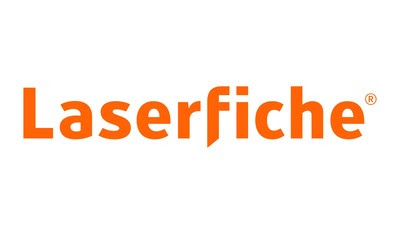“Customers are at the heart of everything that we do at Laserfiche and their passion for finding innovative ways to use our products is inspiring,” said Laserfiche Senior Vice President of Corporate Strategy and CIO Thomas Phelps IV. “We’re honored to have been recognized by our customers on Gartner Peer Insights for our product capabilities, sales and support experience, and deployment experience —helping us to achieve the Customers’ Choice designation for three years in a row.”
Gartner defines content services platforms (CSPs) as integrated platforms that provide content-focused services, repositories, APIs, solutions and business processing tools to support digital business and transformation. Laserfiche continues to evolve its offerings beyond traditional enterprise content management (ECM) capabilities, building on Laserfiche’s strengths in content-centric business process automation, electronic forms, dashboard analytics, records management and audit trail. This includes the Laserfiche API, Microsoft Teams integration, Laserfiche Vault, Workflow Bots, Smart Invoice Capture and Direct Share.
This year, the company introduced the Laserfiche Solution Marketplace, expanding on a collection of more than 100 solution templates with downloadable tools for rapid deployment of automated solutions. The marketplace enables customers to accelerate innovation and enterprise transformation through industry-specific solutions, core business processes such as new employee onboarding, as well as templates that help users automate processes related to COVID-19.
In the ‘Voice of the Customer’: Content Services Platforms report, Laserfiche received the highest average overall ratings (4.5 out of 5), as of 31st Jan 2022 based on 86 reviews, of the vendors included. Laserfiche is also a Customers’ Choice in the Midsize Enterprise and North America categories, and a Strong Performer in the Asia/Pacific category.
“MPI embraces the innovation tools that enable us to provide the best possible experience for our participants and our employees,” said Joel Manfredo, CIO at Motion Picture Industry Pension & Health Plans (MPI). “Laserfiche is a visionary partner whose robust platform and customer-centric approach align with our strategic technology plans while inspiring innovative initiatives for advancing our digital transformation.”
To learn more about how customers rated Laserfiche, download a complimentary copy of the 2022 Gartner Peer Insights ‘Voice of the Customer’: Content Services Platforms report here.
About Gartner Peer Insights
Gartner Peer Insights is an online platform of ratings and reviews of IT software and services that are written and read by IT professionals and technology decision-makers. The goal is to help IT leaders make more insightful purchase decisions and help technology providers improve their products by receiving objective, unbiased feedback from their customers. Gartner Peer Insights includes more than 350,000 verified reviews in more than 340 markets. For more information, please visit www.gartner.com/reviews/home.
Gartner Disclaimers
Gartner Peer Insights Customers’ Choice constitute the subjective opinions of individual end-user reviews, ratings, and data applied against a documented methodology; they neither represent the views of, nor constitute an endorsement by, Gartner or its affiliates.
Gartner, Gartner Peer Insights ‘Voice of the Customer’: Content Services Platforms, Peer Contributors, 29th March 2022
Gartner® and Peer Insights™ are trademarks of Gartner, Inc. and/or its affiliates. All rights reserved. Gartner Peer Insights content consists of the opinions of individual end users based on their own experiences, and should not be construed as statements of fact, nor do they represent the views of Gartner or its affiliates. Gartner does not endorse any vendor, product or service depicted in this content nor makes any warranties, expressed or implied, with respect to this content, about its accuracy or completeness, including any warranties of merchantability or fitness for a particular purpose.
About Laserfiche
Laserfiche is the leading SaaS provider of intelligent content management and business process automation. Through powerful workflows, electronic forms, document management and analytics, the Laserfiche® platform accelerates how business gets done, enabling leaders to focus on growth across the enterprise.
Laserfiche pioneered the paperless office with enterprise content management. Today, Laserfiche’s cloud-first development approach incorporates innovations in machine learning and AI to enable organizations in more than 80 countries to transform into digital businesses. Customers in every industry — including government, education, financial services, healthcare and manufacturing — use Laserfiche to boost productivity, scale their business and deliver digital-first customer experiences.
Laserfiche employees in offices around the world are committed to the company’s vision of empowering customers and inspiring people to reimagine how technology can transform lives.
Connect with Laserfiche:
Laserfiche Blog | Twitter | LinkedIn | Facebook
About MPI
The Motion Picture Industry Pension & Health Plans (“MPI”) are Taft-Hartley trust funds established by collective bargaining agreements between many of the unions and employers in the motion picture production industry. MPI is governed by its 32-member Board of Directors and provides health and retirement benefits to more than 100,000 individuals who work in the entertainment industry.
Logo – https://mma.prnewswire.com/media/701026/Laserfiche_Spark_Logo.jpg




